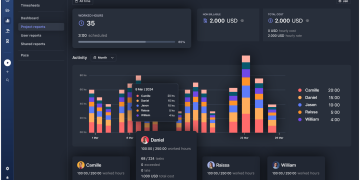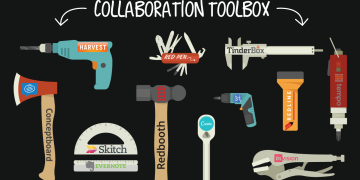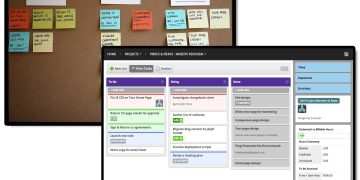In the age of digital tools, collaboration software has become the backbone of productivity. Yet, many teams feel overwhelmed by complicated systems loaded with excessive features they don’t need. They long for a simpler, more streamlined solution that keeps them focused and efficient, not bogged down by overwhelming functionalities. Enter Basecamp — a tool designed to cater to those who crave simplicity and want to avoid the clutter of over-engineered software.
But is Basecamp truly the best option for teams who despise complexity? This article delves into the features, benefits, and potential drawbacks of Basecamp to determine if it lives up to the promise of simplicity. We’ll explore what makes it tick, how it compares to other tools, and why it may or may not be the perfect fit for your team.
The Core Philosophy of Basecamp
Basecamp isn’t just another project management tool. It’s a philosophy. The founders of Basecamp (formerly known as 37signals) have always believed that simplicity is the key to productivity. This belief is reflected in their product, which strives to strip away unnecessary features and present a clean, easy-to-use interface.
The core idea behind Basecamp is that team collaboration doesn’t need to be complicated. With Basecamp, the goal is to keep things organized, transparent, and simple. You won’t find overwhelming dashboards, endless integrations, or the need for a steep learning curve. Instead, it offers a unified place where teams can communicate, share files, assign tasks, and stay on top of deadlines — all without the complexity often found in other project management tools.
Key Features of Basecamp
Before we dive into whether it’s the best choice for teams averse to complexity, let’s first explore the core features of Basecamp that make it stand out from the crowd.
1. To-Do Lists & Task Management
Basecamp provides a straightforward task management system, where teams can create to-do lists, assign tasks, set due dates, and mark items as complete. The design is minimalistic, so you won’t get lost in a sea of complex features. Tasks are organized into simple lists, allowing everyone to stay on track.
2. Message Boards
Communication within Basecamp is facilitated through message boards. These boards allow teams to discuss important topics, share ideas, and keep all conversations in one place. The clean layout of message threads means you don’t have to worry about endless email chains or scattered discussions across various platforms.
3. File Sharing & Storage
Basecamp integrates file storage directly into its platform, making it easy to upload and share documents. Teams can upload everything from presentations to spreadsheets, and files can be easily linked to tasks or conversations for easy reference.

4. Schedule & Calendar
With Basecamp, managing timelines is a breeze. It includes a simple calendar to track deadlines, meetings, and events. All team members can easily view upcoming deadlines, milestones, and other important dates.
5. Campfire (Real-Time Chat)
Campfire is Basecamp’s built-in group chat feature. It provides a real-time communication space where team members can chat, share updates, or ask quick questions without leaving the platform. Campfire is designed to be informal and fluid, helping teams collaborate without feeling constrained by more formal communication structures.
6. Automatic Check-ins
Basecamp has an innovative check-in feature, which prompts team members to answer daily or weekly questions. This could include things like “What are your goals for today?” or “What challenges are you facing?”. It’s a simple but effective way to encourage accountability and keep the team aligned without needing constant meetings.
7. Search and Notifications
Basecamp’s search function allows you to quickly find tasks, conversations, files, or calendar events. The notification system ensures that you never miss an important update, but you can also customize your notification preferences to avoid overload.
Why Basecamp is Perfect for Teams Who Hate Complicated Software
Now that we’ve explored the core features, let’s dive into why Basecamp might be the ideal solution for teams who dislike complex tools.
1. Simplicity at Its Core
The biggest draw of Basecamp is its simplicity. There’s no overwhelming number of features, no complicated set-up process, and no steep learning curve. Everything is intuitive and easy to navigate. For teams that just want a tool that gets out of the way and lets them focus on the work, Basecamp’s clean and simple interface is a breath of fresh air.
2. No Overwhelming Features
Unlike other project management tools that try to be all things to all people — with complex dashboards, complex permissions, and endless add-ons — Basecamp sticks to what it does best. This means no confusing workflows or hidden features that you might never use. You get a clear, no-nonsense platform to manage tasks, communicate, and share files.
3. All-in-One Platform
Basecamp combines several tools in one platform, eliminating the need to juggle different apps for different functions. You don’t need a separate tool for chat, a different one for task management, and yet another for file sharing. With Basecamp, everything is neatly integrated into one place, meaning you won’t waste time switching between apps.
4. No Learning Curve
Getting started with Basecamp is fast. There are no complex tutorials or hours of onboarding. It’s as simple as signing up, creating a project, and starting to assign tasks or messages. For teams who want to get up and running quickly, this is a significant advantage. Most teams can start using Basecamp effectively within just a few minutes of logging in.
5. Clutter-Free Design
Many project management tools overwhelm users with cluttered dashboards full of confusing data and endless options. Basecamp’s design is minimalist and user-friendly. You won’t be bombarded with notifications or complex settings. Instead, you’ll find a calm, easy-to-navigate interface that keeps distractions at bay and allows you to focus on what matters.

6. Transparent and Centralized Communication
Basecamp emphasizes transparency. With all your communication in one place (messages, files, tasks), there’s no need to worry about tracking down information scattered across various email chains, Slack messages, or other tools. Everyone on the team can see the status of projects, deadlines, and who’s doing what at all times, making collaboration smoother and more efficient.
7. Flat Pricing Structure
Basecamp offers a flat pricing model, which eliminates confusion over billing. Unlike other tools that charge per user or have complicated tiered pricing, Basecamp simply charges a set fee for unlimited users. This is particularly appealing for growing teams or startups that want predictable costs.
Drawbacks of Basecamp
While Basecamp is designed for simplicity, it does come with some limitations that might not make it the right fit for every team.
1. Limited Customization
Basecamp’s simplicity is both its strength and its weakness. While it keeps things easy to use, it also means there’s limited flexibility when it comes to customization. If your team requires more advanced features or personalized workflows, Basecamp might not have the depth you need.
2. No Time Tracking
Unlike some project management tools, Basecamp does not have built-in time tracking. For teams that bill clients based on time or need to track how long tasks take, this could be a drawback.
3. Lack of Advanced Reporting
While Basecamp provides a basic level of project tracking and notifications, it lacks the robust reporting tools that some teams require. For teams who rely heavily on analytics or need deep insights into project performance, other tools may be more appropriate.
4. Limited Third-Party Integrations
Basecamp’s philosophy of keeping things simple means it doesn’t offer as many third-party integrations as other tools. If your team relies on a wide array of specialized tools or apps, you may find this to be a limitation.
How Does Basecamp Compare to Other Tools?
To further evaluate Basecamp’s standing, let’s quickly compare it with other popular project management tools.
1. Basecamp vs. Asana
Asana is another popular project management tool, but it’s much more feature-rich than Basecamp. It offers more advanced task management, reporting, and customizations. However, Asana can become overwhelming with all of its options. For teams who prioritize simplicity, Basecamp’s minimalist design would be a better fit.
2. Basecamp vs. Trello
Trello’s visual approach to task management is great for teams that love kanban boards and need a highly visual interface. However, Trello doesn’t provide the same level of integrated communication tools (like Basecamp’s message boards and Campfire chat), so it’s not as well-suited for teams that want everything in one place.
3. Basecamp vs. Monday.com
Monday.com is another project management tool that offers a lot of customization and features. It’s great for teams that need advanced project tracking and workflows, but it can feel a bit overwhelming for those who prefer simplicity. Basecamp’s ease of use makes it a better option for smaller teams or those who value straightforward design.
4. Basecamp vs. Slack
While Slack is primarily a communication tool, it does have some project management capabilities with channels, direct messages, and integrations. However, Slack is heavily chat-based and lacks some of the task management features that Basecamp provides. If your team needs a more structured way to manage tasks and deadlines, Basecamp may be the better choice.
Conclusion: Is Basecamp Right for Your Team?
Basecamp is an excellent option for teams that value simplicity and want a no-frills solution for project management. With its clean interface, intuitive features, and all-in-one functionality, it’s perfect for teams that want to avoid complexity and focus on collaboration without distraction.
However, it’s not the right fit for every team. If your team requires advanced reporting, deep customization, or integrations with numerous third-party apps, Basecamp may feel too limited. But for those who want to keep things simple and effective, Basecamp is one of the best tools out there.
If you’re tired of complicated software and want something that allows you to work more efficiently, Basecamp could be the game-changer you’ve been looking for.






















